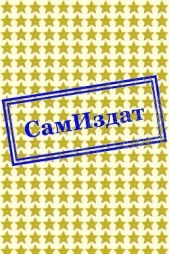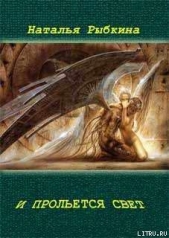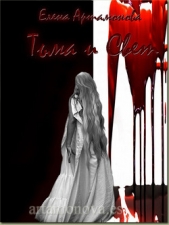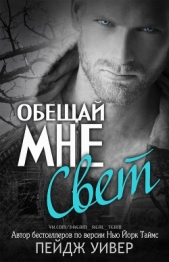На исходе дня. История ночи
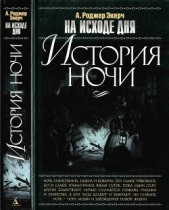
На исходе дня. История ночи читать книгу онлайн
Книга известного американского ученого А. Роджера Экерча "Ha исходе дня. История ночи" перевернула представления человека о темном времени суток. Казалось бы, что может случиться с людьми после заката солнца, когда они отдыхают или спят? Но по убеждению автора, именно ночью происходит много интересного, таинственного и забавного. Ночь — это убежище от обыденности, пора влюбленных, время действий добрых и злых сил. Кто-то отправляется развлекаться на балы и маскарады, кто-то спешит в таверну или кабачок, а кое-кто предпочитает посвящать ночные часы усердной молитве. Под покровом тьмы совершаются и различные преступления — от мелких краж до жестоких убийств. При свете свечей проводят собрания члены тайных обществ и сект. Ночью занимаются сексом, болеют, рассказывают страшные истории, делают записи в дневнике, сочиняют книги, мечтают… Автор подробно описывает ночную жизнь людей разных сословий в странах Европы и Америки в период с XVI и до середины XIX века, когда в мир пришло искусственное освещение, прорезавшее ночную тьму. Наряду с документальными текстами исследователь приводит немало захватывающих, пугающих и комических историй, оставшихся в памяти нескольких поколений.
Внимание! Книга может содержать контент только для совершеннолетних. Для несовершеннолетних чтение данного контента СТРОГО ЗАПРЕЩЕНО! Если в книге присутствует наличие пропаганды ЛГБТ и другого, запрещенного контента - просьба написать на почту [email protected] для удаления материала
26. Randle Cotgrave, A Dictionaire of the French and English Tongues (London, 1611); Laurence Sterne, The Life & Opinions ofTristam Shandy, Gentleman (New York, 1950), 568; Sept. 22, 1660, Pepys, Diary, I, 251; Alison Weir, Henry VIII: The King and His Court (New York, 2001), 84.
27. The Queens Closet Opened… (London, 1661), 60–61,101–102; Aug. 11,1678, Michael Hunter and Annabel Gregory, eds., An Astrological Diary of the Seventeenth Century: Samuel JeakeofRye, 1652–1699 (Oxford, 1988), 140; Christof Wirsung, Praxis Medicinae Universalis; or a Generali Practise of Phisicke… (London, 1598), 618.
28. Moryson, Itinerary, IV, 44; "T.C.," PL, Dec. 5, 1765. В книге «Celestina: A Novel in Dialogue», написанной Фернандо де Рохасом и опубликованной на английском языке в переводе Лесли Бёрд Симпсон (Berkeley, Calif., 1971), главный герой говорит о вине: «В зимнюю ночь нет лучше грелки. Если, перед тем как лечь спать, я выпиваю три небольших кувшина вина наподобие этих, я не чувствую холода в течение всей ночи» (104).
29. Bradwell, Watch-man, 38; "W," LC, Oct. 9, 1763; Henry G. Bohn, A Hand-book of Proverbs… (London, 1855), 28; May 25,1767, Cozens-Hardy, ed., Neville Diary, 8; Feb. 29,1756, Turner, Diary, 32.
30. Thomas Elyot, The Castel ofHelthe (London, 1539), fo. 46; Governai, In this Tretyse that Is Cleped Govemayle ofHelthe (New York, 1969); Bullein, Goveriment of Health, 90.
31. Sept. 29, 1661, Pepys, Diary, II, 186; East Anglian Diaries, 51; Thomas, Religion and the Decline of Magic, 113–128; François Lebrun, "The Two Reformations: Communal Devotion and Personal Piety," in HPL III, 96–97. Упоминания о ночном «затворе» можно найти в кн.: Owen Feltham, Resolves (London, 1628), 406; Oct. 2, 1704, Cowper, Diary; Andrew Henderson, ed., Scottish Proverbs (Edinburgh, 1832), 48.
32. John Bartlett, Familiar Quotations…, ed. Emily Morison Beck et al. (Boston, 1980), 320; Whole Duty of Man, 388; Thomas Becon, The Early Works…, ed. John Ayre (Cambridge, 1843), 403.
33. Thankfull Remembrances of Gods Wonderful Deliverances… (n. p., 1628). См. также: July 18,1709, Cowper, Diary. Хорошо известна древняя корнуоллская молитва: «От вампиров, и призраков, и ползучих тварей, и от вещей, о которые можно удариться ночью, избавь нас, Милосердный Боже!» (Bartlett, Familiar Quotations, ed. Beck et al., 921).
34. Martine Segalen, Love and Power in the Peasant Family: Rural France in the Nineteenth Century, trans. Sarah Matthews (Chicago, 1983,124–125; Phillipe Martin, "Corps en Repos ou Corps en Danger? Le Sommeil dans les Livres de Piété (Second Moitié du XVIIIe Siècle)," Revue d'Histoire et de Philosophie Religieuses 80 (2000), 253.
35. Gwyn Jones, comp., The Oxford Book of Welsh Verse in English (Oxford, 1977), 78; July 15,1705, Cowper, Diary; Gervase Markham, Countrey Contentments… (London, 1615), 31; William Lilly, A Groatsworth of Wit for a Penny; or, the Interpretation of Dreams (London, [1750?]), 18.
36. Cogan, Haven of Health, 235.
37. Harrison, Description, 200–201; Raffaella Sard, Europe at Home: Family and Material Culture, 1500–1800, trans. Allan Cameron (New Haven, 2002), 120; John E. Crowley, The Invention of Comfort: Sensibilities & Design in Early Modern Britain & Early America (Baltimore, 2001), 73–76; Anne Fillon, "Comme on Fait son Lit, on se Couche 300 Ans d'Histoire du Lit Villageois," in Populatiens et Cultures… Etudes Réunies en l'Honneur de François Lebrun (Rennes, 1989), 153–161.
38. Stephanie Grauman Wolf, As Various as Their Land: The Everyday Lives of Eighteenth-Century Americans (New York, 1993), 66; Carole Shammas, "The Domestic Environment in Early Modem England and America," JSH14 (1990), 169,158; Dannenfeldt, "Renaissance Sleep," 426 n. 31; Crowley, Comfort, passim; F. G. Emmison, Elizabethan Life: Home, Work & Land (Chelmsford, Eng., 1976), 12–15; Roche, Consumption, 182–185.
39. Bartlett, Familiar Quotations, ed. Beck et al., 290; Lemnius, Touchstone of Complexions, trans. Newton, 73; Cogan, Haven of Health, 235; Brad well, Watch-man, 39.
40. Alan Everitt, "Farm Labourers," in Joan Thirsk, ed., The Agrarian History of England and Wales, IV, 1500–1640 (London, 1967), 449; Horn, Adapting to a New World, ЗЮЗИ, 324–325.
41. A Browning, ed., English Historical Documents, 1660–1714 (New York, 1953), 729; [Ward], A Trip to Ireland… (n. p., 1699), 5.
42. Harrison, Description, 201; OBP, Sept. 9—16,1767,259; Feb. 19,1665, Pepys, Diary, VI, 39; Cissie Fairchilds, Domestic Enemies: Servants & Their Masters in Old Regime France (Baltimore, 1984), 39; Steven L. Kaplan, The Bakers of Paris and the Bread Question, 1700–1775 (Durham, N. C, 1996), 259. Слуга в колониальном Мэриленде жаловался: «Завернуться в одеяло и лечь на землю — вот и весь отдых, который мы можем себе позволить» (Elizabeth Sprigs to John Sprigs, Sept. 22, 1756, in Merrill Jensen, ed., English Historical Documents: American Colonial Documents to 1776 [New York, 1955], 489). Такая судьба ожидала большинство американских рабов в раннее Новое время. Несмотря на то что в некоторых жилищах имелись «кровати из досок», чаще рабы спали на земле среди соломы, тряпья или, если повезет, нескольких грубых одеял (Morgan, Slave Counterpoint, 114).
43. OED, s. V. "bulkers"; John Heron Lepper, The Testaments of François Villon (New York, 1926), 12; Order of Nov. 28, 1732, London Court of Common Council, BL; Menna Prestwich, Cranfield: Politics and Profits Under the Early Stuarts (Oxford, 1966), 529;
Paroimiographia (French), 18; H. S. Bennett, Life on the English Manor: A Study of Peasant Conditions, 1150–1400 (Cambridge, 1967), 233; Richard Parkinson, ed., The Private Journal and Literary Remains off John Byrom (Manchester, 1854), I, Part 2,407.
44. RB, VI, 220; Tornano, Proverbi, 127.
45. Alain Collomp, "Families: Habitations and Cohabitations," in HPL III, 507; Flandrin, Families, trans. Southern, 98–99; Flaherty, Privacy, 76–79.
46. Constantia Maxwell, Country and Town in Ireland under the Georges (London, 1940), 123: Ménétra, Journal, 137; Flandrin, Families, trans. Southern, 100.0 выражении «to pig» cm.: OED; Journal of Twisden Bradboum, 1693–1694,1698,19, Miscellaneous English Manuscripts c. 206, Bodl.; Edward Peacock, comp., A Glossary of Words Used in the Wapentakes of Manley and Corringham, Lincolnshire (Vaduz, Liecht., 1965), 191.
47. John Dunton, Teague Land, or a Merry Ramble to the Wild Irish: Letters from Ireland 1698, ed. Edward MacLysaght (Blackrock, Ire., 1982), 21; Howard William Troyer, Five Travel Scripts Commonly Attributed to Edward Ward (New York, 1933), 5, 6; Maxwell, Ireland, 125; Patricia James, ed., The Travel Diaries of Thomas Robert Malthus (London, 1966), 188, Pinkerton, Travels, III, 667.
48. James E. Savage, ed., The "Conceited Newes" of Sir Thomas Overbury and His Friends (Gainesville, Fla., 1968), 260.
49. Elias, Civilizing Process, trans. Jephcott, 1,160–163; Abel Boyer, The Compleat French-Master… (London, 1699), 6; Elborg Forster, ed. and trans., A Woman's Life in the Court of the Sun King: Letters of Liselotte von der Pfalz, 1652–1722 (Baltimore, 1984), 149.
50. John Greaves Nail, ed., An Etymological and Comparative Glossary of the Dialect and Provincialism of East Anglia (London, 1866), 512; Elias, Civilizing Process, trans. Jephcott, 1,166–168.
